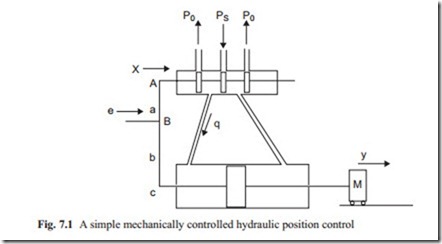Introduction
One major advantage fluid has over electrical power is that the former is not bound by the physical limitation of the material. For example, the saturation limit of steel limits the performance of the electro magnet, and available force per unit area from the hydraulic system is something like ten times than that of a saturated magnet. Therefore, hydraulic units are used whenever a large force for a small volume or a small weight is required. This applies particularly to heavy machinery such as mining machines and mobile equipment but it is not as important as in machine tools where accuracy and stability are the prime requirements. One main disadvantage of hydraulic power is that they are operated by high pressure oil which means that an expert must operate them and the oil must be kept clean and leakage to outside environment must be avoided.
In theoretical analysis, the hydraulic power units are more complicated than the electrical because of the degree of nonlinearity in the mathematical model, which will be shown later. In this chapter, the accuracy, stability, and performance of a 10 kW electrohydraulic servo motor will be analyzed. This 10 kW motor has the equivalent weight of 1 kW electrical motor. The other side of disadvantage of hydraulic motors is that they require high power fluid which means a hydraulic pump and the necessary safety valves and reservoir are required. Although this analysis is done on a particular motor, similar methods may be carried out for other power range of hydraulic motors.
In servo systems, often spool valves are used because they require very little force to move them. The only nonlinearity apart from static friction is in flow equation. This will be discussed in detail in this chapter. Throughout the book, it is assumed that high pressure hydraulic oil ( Ps) at the required flow rate is available. In this kind of hydraulic oil, the compressibility is very small.
